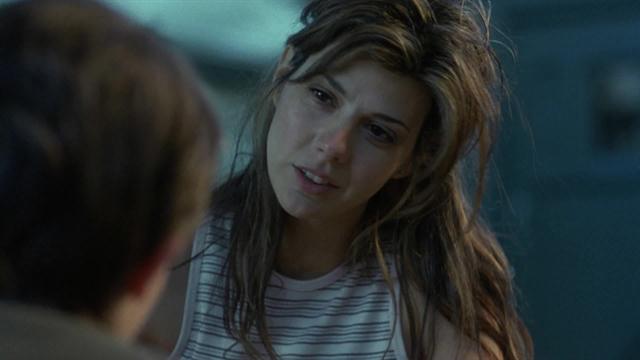The twist has been around for ages. Many mysteries of old depended on the twist, much to the chagrin of faithful readers and Neil Simon. His authorial surrogate, Lionel Twain, once chastised all of the mystery genre’s greatest sellers for their various shortcomings.
You’ve tricked and fooled your readers for years. You’ve tortured us all with surprise endings that made no sense. You’ve introduced characters in the last five pages that were never in the book before. You’ve withheld clues and information that made it impossible for us to guess who did it. But now, the tables are turned. Millions of angry mystery readers are now getting their revenge. When the world learns I’ve outsmarted you, they’ll be selling your $1.95 books for twelve cents.
Les Diaboliques is built around a twist ending that is as wicked and devious as it is unrealistic. The twists in Vertigo constantly change the meaning of the movie. Hell, with all of the nagging warnings in at the end of Les Diaboliques, Hitchcock’s Psycho, and Castle’s Homicidal, one could almost pinpoint the start of the no-spoiler mentality.
Though that mentality would die down for awhile, it picked right back up in 1999 with The Sixth Sense, whose twist ending changed the perception of the movie’s first watch. Sure, spoilers are no fun when the twist is part of the gimmick. But, what happens when the twist is actually the fundamental nature of the film? How does one talk, meaningfully, about a film which wants to sell itself as one thing then pull the rug out from under the audience to reveal itself as something far more sinister?
I was faced with this question with Todd Fields’ 2001 feature In the Bedroom, a drama that pretends to be about a relationship that steadily escalates into an abusive hostage situation. But, 30 minutes in, Marisa Tomei, the woman in the relationship, is murdered by her boyfriend, and the remaining 80 minutes is about how her parents deal with the grief of their loss. Talking about In the Bedroom meaningfully was impossible without giving away the emotional knee-jerk of the murder that was central to the film’s experience.
The tyranny of the twist is such that one cannot reveal the twist without ruining a movie, but one cannot talk meaningfully about the movie without revealing the twist. Movie sites like The Dissolve and AV Club have attempted to create spoiler spaces to reveal the movie’s true nature in a safe space. Though, that leaves the original review toothless and unable to fully discuss a movie in its full glory.
How do you talk around the twist? What are your favorite movies with meaningful twists? Are twists always cheap? Discuss the twist below.

